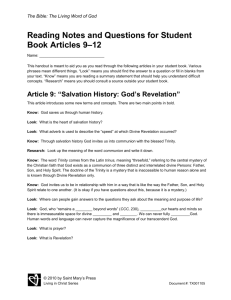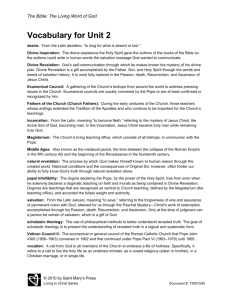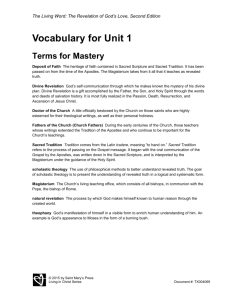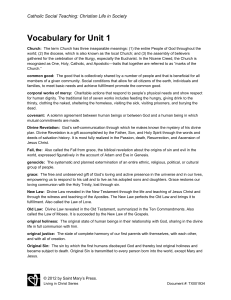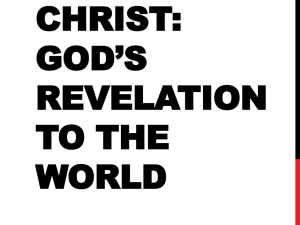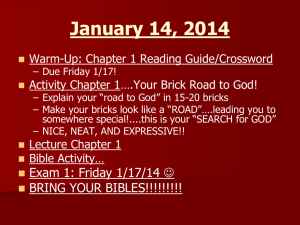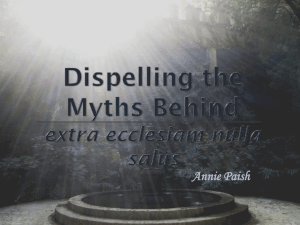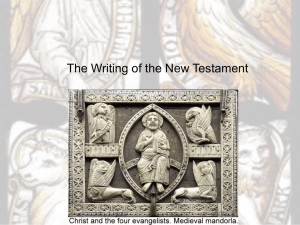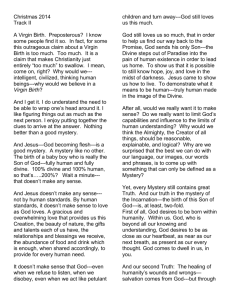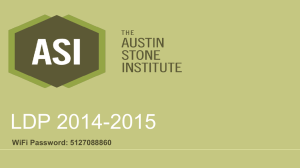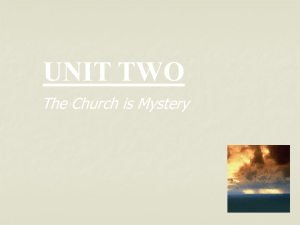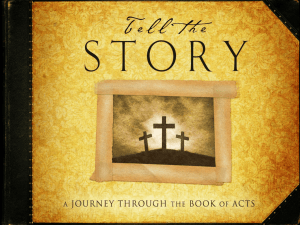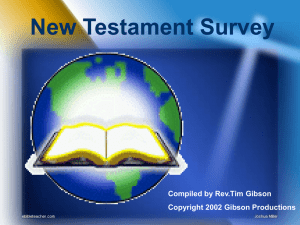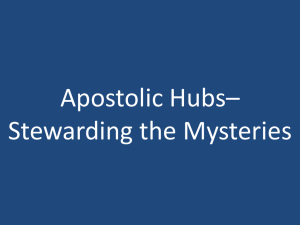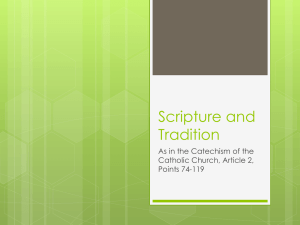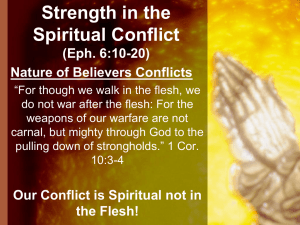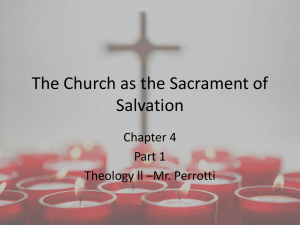Power Point - Introduction to Salvation History
advertisement
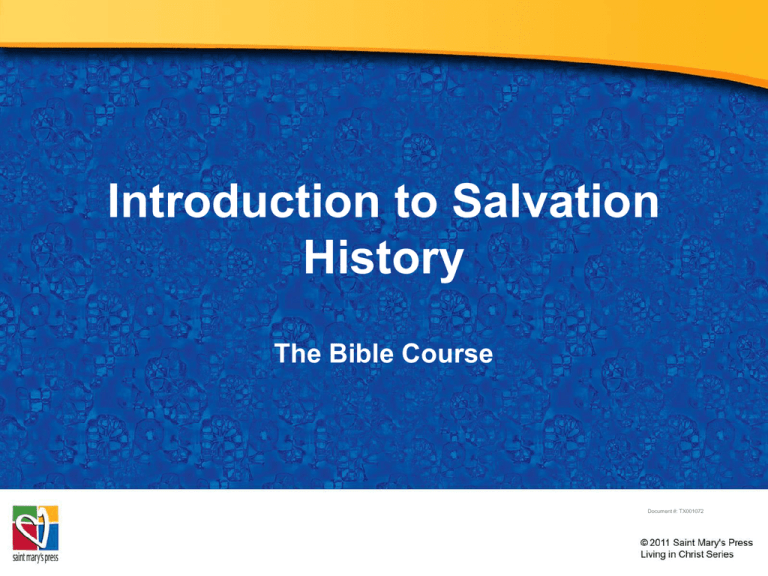
Introduction to Salvation History The Bible Course Document #: TX001072 What Is Salvation History? Image in public domain • Salvation history is the pattern of events in human history in which God clearly reveals his presence and saving actions. • God’s saving hand has been at work in and through human history. What Is Salvation History? What are examples from Scripture of the Father, Son, and Holy Spirit being present and active in the lives of God’s people? Image in public domain • All human history is salvation history; by that we mean that the one true God—Father, Son, and Holy Spirit—has been present and active in the lives of his people since the beginning of time. What Is Salvation History? • In the unfolding of salvation history, God invites us into communion with the blessed Trinity. • Divine Revelation culminates in Jesus Christ. Image in public domain How do you experience the Three Persons of the Trinity? Scripture and Salvation History • Salvation history, as written about in the Scriptures, reveals God’s love for his people. Every time we read or hear the Word of God, we are led ever deeper into the mystery and wonder of God. How have you experienced the mystery and wonder of God in the Scriptures? What story in the Scriptures most tells you about God’s love? Salvation History in the Old Testament • God invited our first parents, Adam and Eve, into intimate communion with him when he created them. • Although God revealed his will and plan to Adam, Eve, Abraham, and Moses, humanity’s inclination to sin stood in the way of God’s plan. Adam and Eve Images - © The Crosiers/Gene Plaisted, OSC Abraham Moses Salvation History in the Old Testament • The Israelites continued to turn away from the Covenant and the Law over and over. In response, God revealed himself to the prophets, men like Isaiah, Jeremiah, and Ezekiel. • God remains faithful to the Covenant even when the people of Israel do not. What do you know about the scriptural prophets? Jesus Christ: The Fullness of All Revelation • Jesus Christ fully reveals God to us. • The Gospel of John uses the Greek word Logos (translated in English as Word) for Jesus Christ. • Because the Word (Jesus Christ) is God, we read about the Word in the Old Testament even before he becomes human as described in the New Testament. • In the life of Jesus Christ, we see the glory of God. • In studying the life of Jesus Christ, who reveals the New Covenant, we come to know the fullness of salvation. The Transmission of Divine Revelation Image in public domain • Jesus Christ, the fullness of Divine Revelation, commanded and entrusted the Apostles to herald to all people and all nations what they had heard and seen regarding the salvation of God. • This handing on, or transmission, of the truths Jesus Christ taught is known as Sacred Tradition and will continue “under the inspiration of the Holy Spirit, to all generations, until Christ returns in glory” (CCC, 96). • Once the time had come to finish their work on this earth, the Apostles chose their successors, who are given the title “bishop.” To these successors the Apostles passed on the authority to teach and interpret the Scriptures and Tradition. This process is known as Apostolic Succession. Image in public domain The Transmission of Divine Revelation The Transmission of Divine Revelation • These two pillars, the written, inspired Word of God and the living transmission of the Word of God, communicate effectively the whole of God’s Revelation. Neither pillar can be understood without the other. Neither can be understood without the other. The Transmission of Divine Revelation • The Deposit of Faith, the heritage of faith contained in the Sacred Scriptures and Tradition, unites all of the People of God with their religious leaders and the early Apostles. How does the Deposit of Faith unite God’s People with religious leaders and the early Apostles? The Transmission of Divine Revelation • The bishops, in communion with the Pope, are called the Magisterium of the Church. They are servants to the written words of the Scriptures and the transmission of the truth in Tradition. Because they are servants, Christ charges the Pope and bishops with the authentic interpretation and teaching of all that has been handed down. • The Magisterium, rooted in its teaching authority and moved by the Holy Spirit, defines the central teachings of the Catholic Church, known as dogma. How do you see the Magisterium acting as servants to Sacred Scripture and Tradition?
